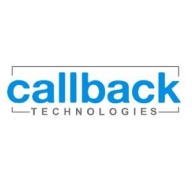


Dell ECS and S3 Drive are competing in cloud storage solutions. Dell ECS holds an edge in cost-effectiveness and scalability, while S3 Drive stands out for flexibility and integration.
Features: Dell ECS supports unstructured data, thrives in geo-distributed environments, and ensures scalability and security. S3 Drive integrates seamlessly with multiple operating systems and provides effective file access. Dell ECS caters to large-scale, enterprise solutions, whereas S3 Drive meets simpler integration needs.
Ease of Deployment and Customer Service: Dell ECS has complex setup procedures, with strong support and comprehensive documentation. S3 Drive's straightforward installation and intuitive operation make deployment easier but offer less personalized support, suiting smaller operations better.
Pricing and ROI: Dell ECS requires a higher initial investment, suitable for large enterprises seeking long-term scalability and customization, offering substantial ROI. S3 Drive provides a cost-effective option with lower setup expenses, beneficial for smaller businesses prioritizing quick deployment over extensive functionalities.


FlashBlade is the industry’s most advanced scale-out storage for unstructured data, powered by a modern, massively parallel architecture to consolidate complex data silos (like backup appliances and data lakes) and accelerate tomorrow’s discoveries and insights.
Enterprise-ready. Future-proof. Data-first.
Dell EMC Elastic Cloud Storage (ECS) is a file and object storage solution from Dell EMC. ECS has been created to support both traditional and next-generation ecosystems equally. ECS boasts unrivaled economics, manageability, resilience, and scalability to satisfy the demands of today's next-gen, robust business enterprise ecosystems. ECS can easily be deployed in a software-defined model or as a turn-key appliance. ECS is software-defined and multi-layered for unlimited scalability. Every layer is abstracted and scalable with no single point of failure.
Everything is done within the software, which is containerized, using docker.
ECS is currently deployed using basic commodity hardware, which can easily be federated across as many as eight different locations and managed as a single resource. Additionally, ECS can also protect data at the site level, locally, disk, node, and rack levels. The federation enables a single global namespace with everywhere access to content. Applications can quickly rewrite in an active/active or everywhere active manner.
ECS is also able to be used as secondary storage or archival storage. This will free up valuable primary storage of data that is stale, redundant, or used infrequently, and the data will remain easily accessible. ECS uses policy-based tiering such as Data Domain, Cloud tiering, Isilon using cloud polls, and Geodrive, which give Windows systems direct access to ECS. Windows users can still use server message block (SMB) while leveraging the more expansive ECS storage.
ECS is enterprise-grade and offers valuable features such as retention, multi-tenancy, metering, monitoring, quotas, and more. ECS builds in robust security from the ground up and encrypts data. ECS is compliant with STIG guidelines and adheres to SEC rule 17A-4F.
ECS is an enterprise-ready solution that allows organizations to easily simplify object storage management and visualize information in intuitive new ways, and empowers your business to do even more with data. With ECS, enterprise organizations can deliver cloud-scale economics in-house that will lower total cost of ownership (TCO) and scale, creating greater levels of productivity and profitability.
Reviews from Real Users
One user, who is a deputy director at a tech service company, says ECS offers “good performance, reliability, and technical support”.
Dell EMC ECS is “a stable solution which is easy to scale, install and manage”, relates another user, who is a senior buyer at a tech service company.
"What I like best about this product is that it is a complete solution, both hardware, and software, by the same vendor," summarizes a system engineer at a tech services company.
S3 Drive offers seamless cloud storage access, enhancing data management efficiency for tech-savvy users needing direct Amazon S3 integration for their workflows.
S3 Drive enables efficient data management by bridging local file access with Amazon S3 storage, streamlining tasks for enterprises requiring high-performance cloud integration without compromising on security. Its advanced functionalities target industries needing reliable and scalable storage solutions.
What are the key features of S3 Drive?S3 Drive is extensively used in media, healthcare, and financial sectors for its robust storage capabilities and ease of integration with complex IT infrastructures, allowing for efficient data processing and secure storage. It proves invaluable for businesses with significant data throughput and the need for reliable cloud solutions.
We monitor all File and Object Storage reviews to prevent fraudulent reviews and keep review quality high. We do not post reviews by company employees or direct competitors. We validate each review for authenticity via cross-reference with LinkedIn, and personal follow-up with the reviewer when necessary.